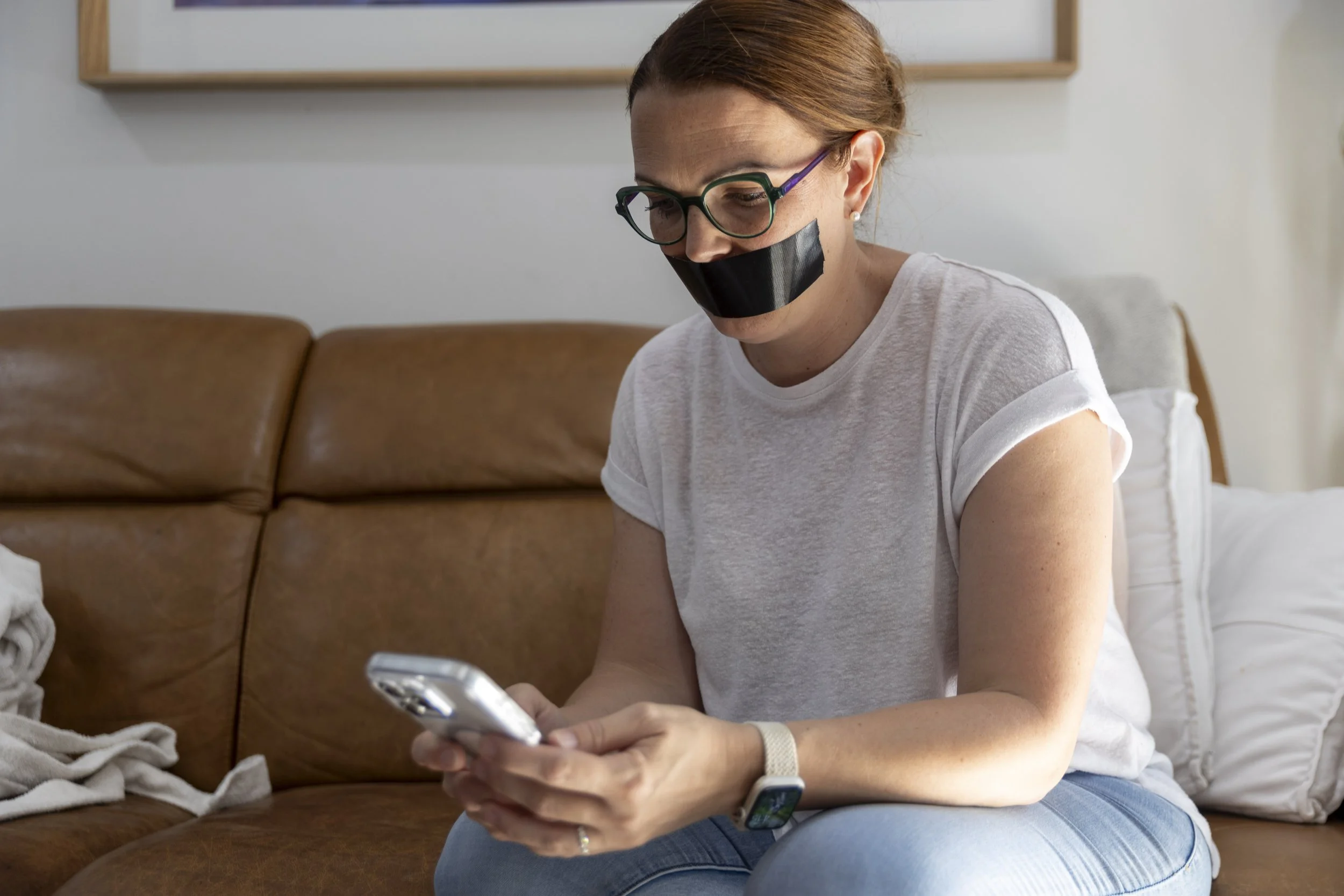To Speak or Not to Speak: A Parent's Dilemma
Every parent has that moment of hesitation, that sinking feeling in their gut when they know they need to speak up for their child, yet fear the consequences. It is an age-old battle, one fought not just by parents of children with disabilities, but by every mother and father who simply wants what is best for their child. To speak, or not to speak? It is not as simple as it sounds.
I have lost count of the number of times I’ve been labelled a “difficult parent,” not because I’ve ever been rude or disrespectful, but because I dared to advocate for my son’s basic human rights. I will never forget the email I received from my son’s previous school: “You are asked to engage respectfully and pleasantly with staff and to depart the school at the conclusion of the event.” It was a slap in the face. I have always engaged respectfully and pleasantly - except for that one meeting, which, if I’m honest, felt like a setup to kick us out of the school.
The truth is, I had good relationships with the teachers, office staff and teacher aides. But the moment I started advocating for my son’s human rights, I became the aggressor in their eyes. Suddenly, I was not a parent with concerns. I was a threat. It is a narrative far too many parents are familiar with.
“Don’t Say Anything, So Your Son Doesn’t Cop It”
A dear friend of mine has said to me repeatedly, “Don’t say anything, so your son doesn’t cop it.” I know her advice comes from a place of love. She has watched me fight, seen the toll it takes on my wellbeing, and she hates conflict. I get it. I understand her plea for me to “pick my battles.” But my son’s rights? That is a battle worth picking. Every time I am faced with the decision to speak or remain silent, I feel the weight of my values pressing on me.
But here is the thing: that advice, as well-meaning as it is, comes from a place of privilege. If you have not lived the reality of managing a child with a disability, you do not fully grasp the stakes. It’s not just about avoiding conflict - it’s about ensuring my son is treated with the dignity and respect he deserves under the law, including the Disability Standards of Education. His basic rights should never be up for debate, yet here we are, forced to fight for them every step of the way.
I am a strong, intelligent woman. I have been a teacher for over 20 years. How can I sit back and say nothing? To do so would betray everything I believe in. But the more I speak, the more I see the walls going up around me. It becomes an "us versus them" situation, and suddenly, I am no longer welcome in the very school that should be an ally in my child’s education.
This Is Not Just About Disability - It’s About Every Child
It is not just parents like me, parents of children with disabilities, who face this battle. It is every parent who dares to question the status quo. I think about my friend - She has a beautiful little girl, early school years, bright-eyed, bubbly. One day, her daughter went to the toilet 15 minutes before school ended. Her mother was waiting in the designated area, as parents were not allowed near the classrooms. But her girl did not come. When the mother went to ask where her daughter was, they found her walking back from the toilets in tears - she had been stuck there, crying for help because there was no toilet paper.
The distress on the child’s face when she was found haunted her mother. And yet, despite her heartache, my friend did not feel she could say anything. She did not want to be labelled a “problem parent.” She did not want to get on the wrong side of the school or the teacher. I have heard this story too many times. Parents holding back, afraid that their words - no matter how reasonable - will be taken as criticism, that they will be seen as troublemakers.
The Worry for My Other Children
I do not just worry about eldest son. I have three other young children, currently 3, 2, and 1. Every time I speak up for my son, a gnawing fear grips me: will my other children also be punished because their parents chose to advocate for their brother? Will they have a school to attend when the time comes, or will our family be blacklisted for daring to stand up for what is right? It is a constant concern that, in standing up for one child, we may unintentionally make things harder for the others. But how can I remain silent when the very system meant to support my child instead tries to silence me?
The Cost of Silence
It is not just parents who are caught in this silence. Teachers and school staff are trapped too. I know so many who want to speak out against the injustices they see - harassment, bullying, discrimination, nepotism, non-compliance with the law - but they are afraid. They have bills to pay, families to support. They cannot afford to lose their jobs, but they also cannot afford the emotional toll of working in an environment that punishes those who speak up. So, they stay quiet.
This is what coercive control looks like in schools. Leadership wields power in a hierarchical structure and those at the bottom know the risks of speaking up. It is a form of control that silences parents, teachers and anyone who dares to challenge the system.
Leadership as Gatekeepers of Power
School leadership holds the key to whether a child thrives or struggles in the school system. The same leaders can make life hell for parents and staff who raise their voices. They can isolate, ostracise, and make you feel as though you are on the outside looking in. Speaking up becomes a double-edged sword. Do you choose to remain silent for the sake of keeping the peace, even when that silence chips away at your child’s right to a safe and supportive education? Or do you speak out, knowing that the repercussions may ripple through your family, your wellbeing, your child’s experience at school?
I have chosen to speak, not because I do not understand the cost, but because I believe the fight is worth it. I cannot sit back and pretend that everything is fine when it is not. And to every parent who feels trapped in that same dilemma, I see you. I feel your pain. Whether your child has a disability or not, advocating for them is not wrong - it is necessary. We must stop treating parental advocacy as an attack and start seeing it for what it is: a plea for fairness, for safety, for our children’s right to an education that respects them.
#Includemykid
I have decided to share my story, not just for my son, but for every child, and every parent who has been told they’re difficult for simply speaking up. It is time we take back the narrative. Our voices matter. Our children’s futures depend on it. Let’s make sure they know we won’t be silenced.
So, to speak or not to speak? I choose to speak, even if it means I am labelled the difficult one. Because staying silent would mean letting my son down. And that, I cannot do.

